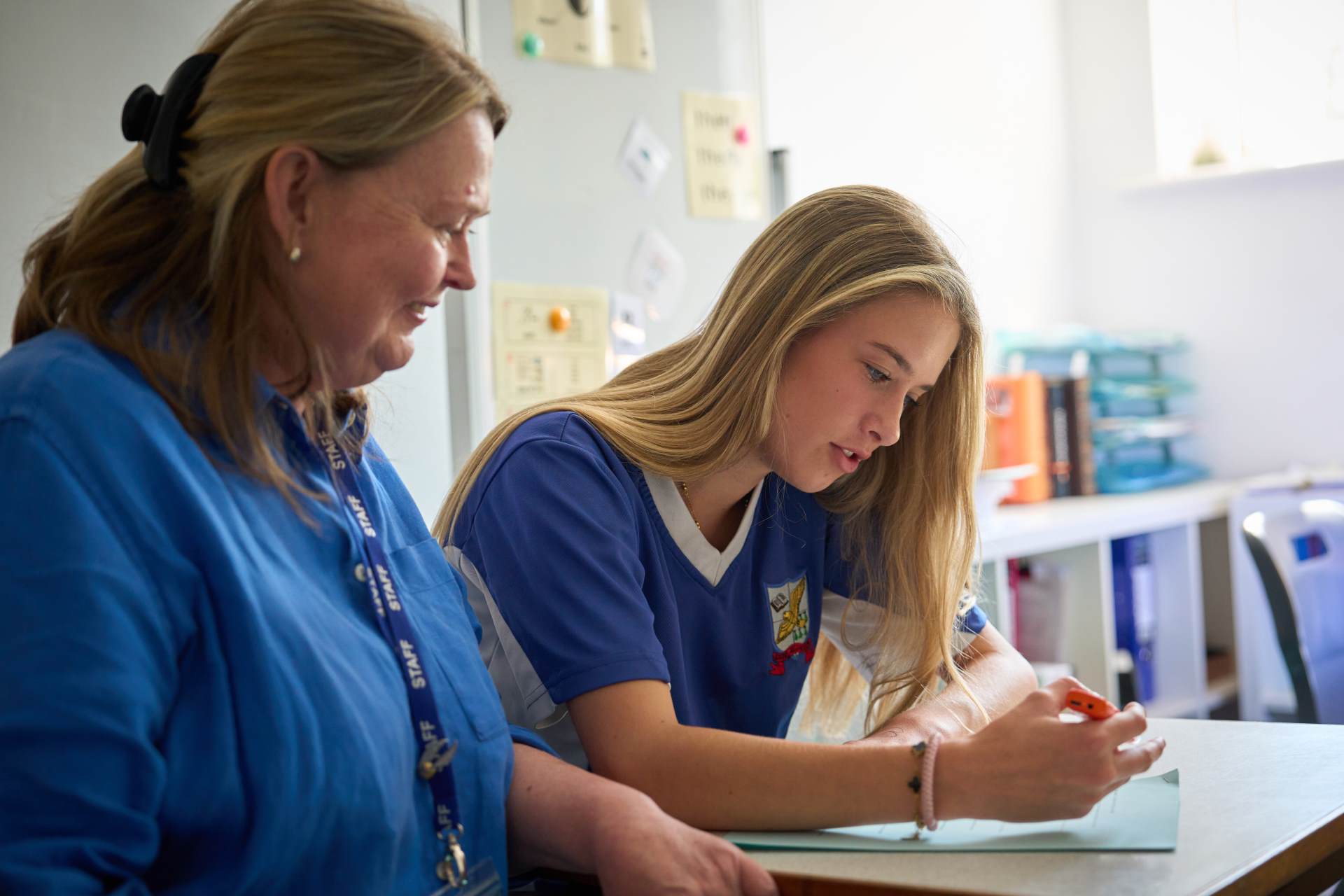English
Multi-sensory and adaptive teaching strategies include:
- Visual aids, colourful sematics, shape coding.
- Talk for writing - where assistive speech to text is used so children can see their ideas in text form.
- Worksheets designed to each individual child's needs.
English Language
Edexcel Pearson GCSE (9-1) English Language 2.0
English Language allows students to draw upon a range of texts (including stories, plays, novels and poems) as reading stimulus. They will have opportunities to develop a higher level of reading and thinking skills that help to encourage their interests in different themes and topics. English Language is designed on the basis that students should read and be assed on high quality, challenging texts from the 19th, 20th and 21st centuries. The texts used cross a range of genres and types which support students in developing their own writing by providing good examples. Students will be encouraged to explore different types of writing including, essays, reviews and journalism.
All candidates take Paper 1: Non-Fiction texts and Paper 2: Contemporary Texts and a Spoken Language Endorsement
Please note that all students who are on the GCSE pathway will also take an Edexcel English Language Functional Skills exam at Level 2 as exam practice preparation and backup to their GCSE exam entry.
There is an expectation that all pupils completing GCSE English Language will be required to complete regular homework tasks and have an attendance record of at least 96%.
Please see the following links for more information on the subject:
- https://qualifications.pearson.com/en/qualifications/edexcel-gcses/english-language-2021.coursematerials.html#%2FfilterQuery=category:Pearson-UK:Category%2FSpecification-
- https://qualifications.pearson.com/en/qualifications/edexcel-gcses/english-language-2021.coursematerials.htmlsample-assessments
Entry Level 1, 2 and 3 (Edexcel Pearson) and Level 1 and 2 (Edexcel).
For the students that find English more challenging, we offer Functional Skills qualifications, at Entry Levels 1, 2 and 3, which progresses to Functional skills Levels 1 and 2.
The pace that students complete these qualifications is decided by the teachers as to what they feel is appropriate. FS Level 2 is the equivalent to a GCSE grade 4. The FS English courses concentrate on the English needed in student’s everyday life including writing letters and comprehending different types of text.
Please see the following links for more information on the subject:
- https://qualifications.pearson.com/content/dam/pdf/Functional-skills/English/2019/specification-and-sample-assessments/entry-level-english-specification.pdfspecification.pdf
- https://qualifications.pearson.com/content/dam/pdf/Functional-
- skills/English/2019/specification-and-sample-assessments/entry-level-english






